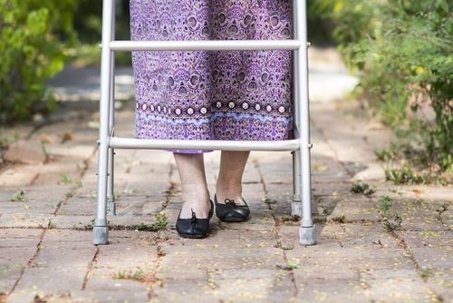 The coronavirus pandemic has made this a frightening time for everyone. COVID-19 poses an even greater threat, however, to the elderly, people with preexisting medical conditions, and the immunodeficient. For these folks, and really for all of us, it is important to make sure that we have chosen someone we trust to help manage our affairs when we can’t do so ourselves.
The coronavirus pandemic has made this a frightening time for everyone. COVID-19 poses an even greater threat, however, to the elderly, people with preexisting medical conditions, and the immunodeficient. For these folks, and really for all of us, it is important to make sure that we have chosen someone we trust to help manage our affairs when we can’t do so ourselves.
The most effective way of accomplishing this is with a “Durable Power of Attorney” (DPOA). Unlike the “last will and testament,” which only becomes effective after we have passed away, our DPOA can become effective immediately upon signing or when we have lost our capacity to make decisions ourselves.
When people hear the term “power of attorney,” they often think first of the Health Care Power of Attorney (HCPOA). This document appoints someone—usually a family member or a close friend—to make crucial decisions about our health and medical circumstances when we are unconscious or otherwise unable to think for ourselves.
Just as important, however, is the DPOA. Given the speed with which COVID-19 sometimes moves after a person becomes infected, it is extremely important to have a DPOA that enables someone to step in at a difficult moment when, due to the extreme risk of infection, they may not be allowed to see or communicate with friends and family.
Taxes are one area in which having a DPOA can be helpful. The Internal Revenue Service (IRS) has changed this year’s tax filing deadline to Wednesday, July 15, 2020, three months after the usual April 15 deadline. It is important to make sure that your DPOA, with help from your financial planner, attorney, or another adviser, has all the information they need to make all necessary filings on your behalf. This should not be confused, by the way, with taxes like inheritance taxes that become due after you have passed away.
A DPOA can also pay your bills and make sure that you are current on all your accounts. There is some relief from payment obligations contained in federal legislation related to the pandemic, but in most cases, this only defers payment obligations, it does not cancel them. A DPOA can also help with insurance and property matters, such as making sure that your premiums and mortgage payments are made.
Other Estate Planning Considerations to Make
As you consider choosing someone to help manage your affairs if you become ill with the coronavirus or other serious condition, you should also take some time to look at your estate plan as a whole. Your will, your HCPOA, your “living will,” or another advanced directive—each of these legal tools deals with a particular component of the process people go through in extreme medical situations. Now is a good time to review and update your estate plan, or to seek help in creating one. Estate plans should also be checked and updated every few years to account for changes in circumstances, and COVID-19 is already leading to massive changes in the way we live.
If you live in Nebraska or Iowa, our team of sixteen attorneys can help you with all your estate planning needs. We also have expertise in family law, employment law, business planning, and personal injury. We have increased our digital capabilities to meet social distancing requirements to limit the spread of COVID-19. We would be happy to assist you with your legal needs in a virtual conversation. We are here to help you however we can during these unprecedented times.
Call (402) 810-8611 today to get more information about our legal services for people who want to plan ahead during the coronavirus pandemic.

